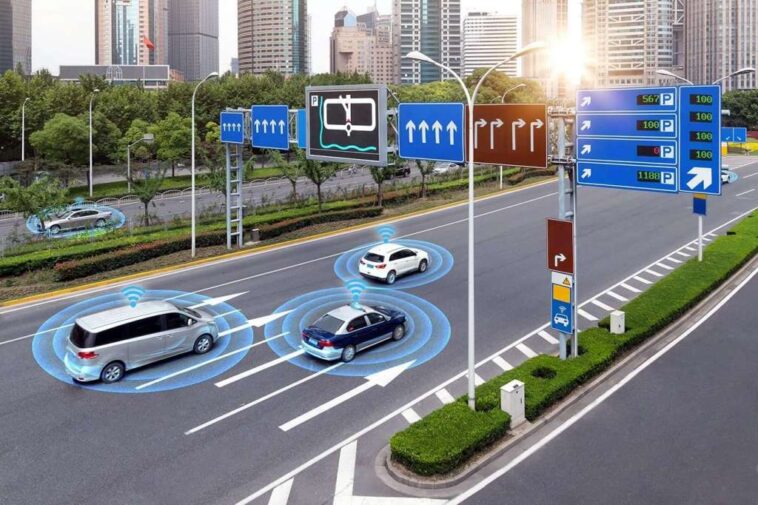Zimbabwe launches its most ambitious urban development project with an artificial intelligence-powered traffic management system in Harare. The sophisticated technology aims to tackle the capital’s persistent congestion issues while enhancing road safety through smart monitoring and control systems.
The newly implemented system harnesses real-time data from strategically placed cameras and sensors throughout Harare’s road network. These devices continuously monitor traffic patterns, vehicle density, and movement speeds across major intersections. Advanced AI algorithms process this information instantly, enabling dynamic adjustments to traffic signals and flow patterns.
Traffic lights now respond intelligently to changing road conditions. During peak hours, the system automatically modifies signal timing to optimize vehicle movement through busy corridors. This smart adaptation helps prevent bottlenecks and reduces the frustration of unnecessary waiting times at intersections.
Beyond congestion management, the system significantly improves road safety. AI-powered cameras detect potential hazards and unusual traffic patterns, allowing for immediate response to incidents. The technology also identifies traffic violations, helping authorities maintain order on the roads while reducing the risk of accidents.
Harare’s traffic transformation places Zimbabwe among Africa’s leading innovators in urban mobility solutions. Other major African cities face similar challenges, with Lagos implementing its Traffic Management Solution in 2021. The Nigerian system focuses on violation detection and fine collection through handheld devices, demonstrating various approaches to urban traffic management across the continent.
The implementation process involves extensive infrastructure development. Teams have installed high-resolution cameras, sensors, and communication networks throughout Harare. These components work together to create a comprehensive monitoring system that covers major thoroughfares and critical intersections.
Data security remains a priority in the system’s design. Robust encryption protocols protect the collected information, while dedicated servers process and store traffic data securely. This infrastructure ensures both efficient operation and protection of sensitive information.
Public education plays a crucial role in the system’s success. Local authorities conduct awareness campaigns to help residents understand and adapt to the new traffic management approach. These efforts include demonstrations of how the system works and explanations of its benefits to daily commuters.
Technical maintenance teams monitor the system around the clock, ensuring continuous operation and prompt response to any malfunctions. Regular updates and calibrations keep the AI algorithms performing optimally, while system diagnostics help prevent potential failures before they occur.
The economic impact extends beyond improved traffic flow. Reduced congestion means lower fuel consumption and decreased vehicle maintenance costs for residents. Businesses benefit from more reliable delivery times and improved mobility for their workforce.
Zimbabwe’s investment in AI-driven traffic management demonstrates its commitment to modern urban solutions. The system serves as a blueprint for other African cities seeking innovative answers to their transportation challenges. As Harare’s streets become more efficiently managed, the technology proves that smart solutions can effectively address complex urban challenges while improving citizens’ daily lives.





